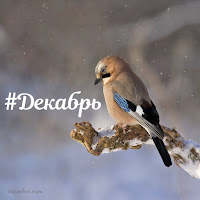24 января_группа5_урок6_день2_домашнее задание
Здравствуйте! Сегодня 24 января понедельник!
Сегодня международный день Эскимо! Вам нравится мороженое Эскимо?
Вот ваше домашнее задание на вторник 25 января:
Speaking
Textbook
- ex. 23 p. 19
- ex. 24a p.20 Fill in the column about yourself
Workbook
- exe. 5 - 9 pp.18-21
Multimedia
- exe. 4 - 6
Reading
Stage 2 Part 2
review vocabulary for stories on pp. 3 and 5 by rereading the articles and working with Cram
preview vocabulary for stories on p. 7 (Галерея у вас дома) and p. 9 (результаты ЕГЭ)
[look at the first word, then go to the body of the article and scan it for this word; once found - highlight/underline/put an asterisk* next to it. Repeat with the rest of the words.
vocab for story on p. 7 about Galleries is on p. 8 and for story on p. 9 about a lawsuit is on p. 10
Remember: we are not reading the stories, we are just searching for the words from the vocabulary list on pp. 8 and 10]
Cultural Awareness
Александр Солженицын
Краткая биография писателя диссидента
Родился 11 декабря 1918 г. в Кисловодске. Родители были выходцами из крестьян. Это не помешало им получить хорошее образование. Мать овдовела за полгода до рождения сына. Чтобы прокормить его, пошла работать машинисткой. В 1938 г. Солженицын поступил на физико-математический факультет Ростовского университета, а в 1941 г., получив диплом математика, окончил заочное отделение Института философии, литературы и истории в Москве. После начала Великой Отечественной войны его призвали в армию. 9 февраля 1945 г. Солженицына арестовала фронтовая контрразведка: при вскрытии его письма к другу сотрудники НКВД обнаружили критические замечания в адрес Сталина. Трибунал приговорил Александра Исаевича к 8 годам заключения с последующей ссылкой в Сибирь. В 1957 г., после начала борьбы с культом личности Сталина, Солженицына реабилитировали. Хрущёв лично санкционировал публикацию его повести о сталинских лагерях «Один день Ивана Денисовича» . В 1967 г., после того как Солженицын направил съезду Союза писателей СССР открытое письмо, где призвал покончить с цензурой, его произведения были запрещены. Тем не менее романы «В круге первом» и «Раковый корпус» распространялись в самиздате и вышли без согласия автора на Западе. В 1970 г. Александр Исаевич был удостоен Нобелевской премии по литературе. В 1973 г. КГБ конфисковал рукопись нового произведения писателя «Архипелаг ГУЛАГ: Опыт художественного исследования». Под «Архипелагом ГУЛАГ» подразумевались тюрьмы, исправительно-трудовые лагеря, поселения для ссыльных, разбросанные по всей территории СССР. 12 февраля 1974 г. Солженицына арестовали, обвинили в государственной измене и депортировали в ФРГ. В 1976 г. он переехал в США и жил в штате Вермонт, занимаясь литературным творчеством. Только в 1994 г. писатель смог вернуться в Россию. До последнего времени Солженицын продолжал писательскую и общественную деятельность. Умер 3 августа 2008 года в Москве.
Бородинская Битва - The Battle of Borodino
Марина Цветаева
Marina Ivanovna Tsvetaeva (8 October [O.S. 26 September] 1892 – 31 August 1941) was a Russian poet. Her work is considered among some of the greatest in twentieth century Russian literature. She lived through and wrote of the Russian Revolution of 1917 and the Moscow famine that followed it. In an attempt to save her daughter Irina from starvation, she placed her in a state orphanage in 1919, where she died of hunger. Tsvetaeva left Russia in 1922 and lived with her family in increasing poverty in Paris, Berlin and Prague before returning to Moscow in 1939. Her husband Sergei Efron and their daughter Ariadna (Alya) were arrested on espionage charges in 1941; her husband was executed. Tsvetaeva committed suicide in 1941. As a lyrical poet, her passion and daring linguistic experimentation mark her as a striking chronicler of her times and the depths of the human condition.
"Идёшь, на меня похожий"
| Your eyes – downcast, like mine We really are – alike; A vagrant, an interloper, Stop, stranger, stop, passerby! Take note, bouquets of poppies, And buttercups taking hold, Of me being called Marina, ... so many years old ... Don't think that this is a graveyard, Or that it conceals – my threat I, here, confess to laughing – In proper etiquette's stead. Blood rushed, and my hair flowed, I also existed, please! At least for a tiny moment, Do stop, passerby, and breathe! The strawberries at the graveyard Are growing large and sweet, First, gather yourself a fistful – Then, do not forget to eat... I beg you, don’t sulk, don’t frown, Don’t hang your head at your chest. The lightness of thought, of passing – It really – is – the best... You’re standing, illuminated, In a cloud of cosmic dust; Don’t let yourself be embarrassed – By my voice, that’s at rest, at last. | Идешь, на меня похожий, Глаза устремляя вниз. Я их опускала — тоже! Прохожий, остановись! Прочти — слепоты куриной И маков набрав букет, — Что звали меня Мариной И сколько мне было лет. Не думай, что здесь - могила, Что я появлюсь, грозя... Я слишком сама любила Смеяться, когда нельзя... И кровь приливала к коже, И кудри мои вились… Я тоже была, прохожий! Прохожий, остановись! Сорви себе стебель дикий И ягоду ему вслед, — Кладбищенской земляники Крупнее и слаще нет. Но только не стой угрюмо, Главу опустив на грудь. Легко обо мне подумай, Легко обо мне забудь. Как луч тебя освещает! Ты весь в золотой пыли… — И пусть тебя не смущает Мой голос из-под земли. |







Comments
Post a Comment